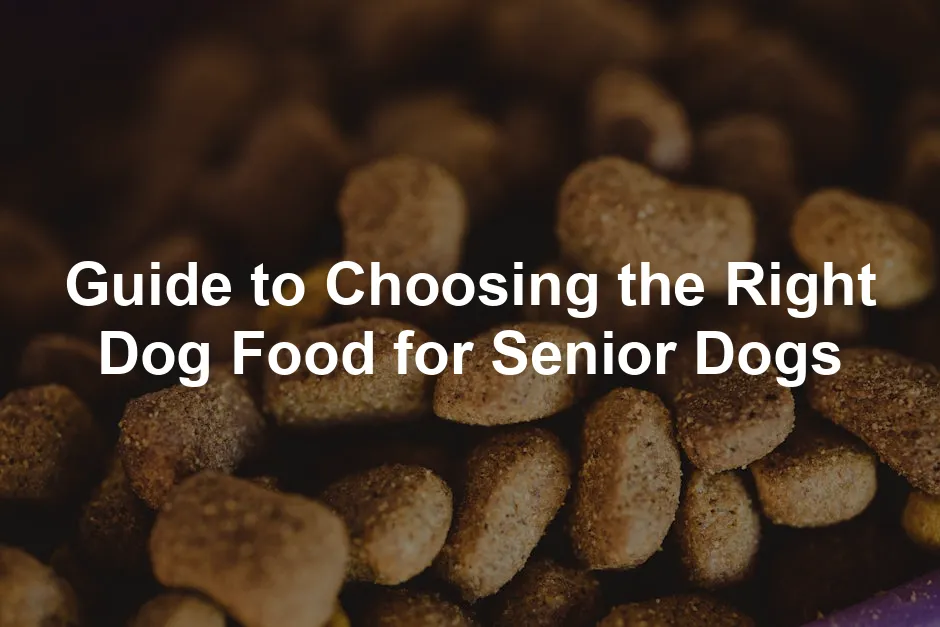Introduction
Choosing the right dog food for senior dogs is crucial. Proper nutrition impacts their health, energy, and overall happiness. As dogs age, they face unique dietary needs that differ significantly from when they were younger. Aging often brings changes in metabolism, activity levels, and even taste preferences. This guide will help you navigate the world of senior dog food, focusing on how to select the best options, what ingredients to prioritize, and how to address specific health concerns. Senior dogs deserve a diet that supports their changing bodies. An adequate diet can help maintain muscle mass, improve digestion, and manage weight. In this guide, we will dive into the essentials of senior dog nutrition, helping you make informed decisions. After all, a well-fed senior dog is a happy dog!One great option to consider is Blue Buffalo Life Protection Formula Natural Adult Dry Dog Food. It’s a great choice for senior dogs due to its high-quality protein and wholesome ingredients that cater to their specific needs.
Understanding Senior Dog Nutrition
Nutritional Changes with Age
As dogs age, their metabolism tends to slow down. This shift affects how they process nutrients, leading to a decreased energy requirement. Consequently, many senior dogs can become overweight if their caloric intake remains unchanged. A well-balanced diet is essential to manage their weight effectively. High-quality protein becomes increasingly important for maintaining muscle mass. Senior dogs need around 28% to 32% protein to support overall health. A diet rich in protein helps sustain their strength and vitality. Additionally, fiber plays a vital role in digestive health. It aids in regulating bowel movements and preventing constipation, a common issue in older dogs.Common Health Issues in Senior Dogs
Senior dogs often face several health issues, including arthritis, kidney disease, and heart disease. Each of these conditions can significantly influence their dietary needs. For instance, arthritis can cause discomfort and limit mobility. A diet rich in omega-3 fatty acids can help reduce inflammation and support joint health. Consider adding Omega-3 Fish Oil for Dogs to their diet to help combat joint pain and inflammation. Kidney disease, another prevalent issue, requires special dietary considerations. Foods low in phosphorus and protein can help ease the burden on the kidneys. Heart disease may necessitate a low-sodium diet to manage fluid retention and blood pressure. With the right nutrition, you can help mitigate these health challenges and improve your dog’s quality of life. In conclusion, understanding the changing nutritional needs of senior dogs is essential. By focusing on high-quality protein, adequate fiber, and addressing specific health conditions through diet, you can ensure your furry friend enjoys their golden years to the fullest. Remember, consultation with your veterinarian can provide tailored advice for your senior dog’s unique dietary requirements.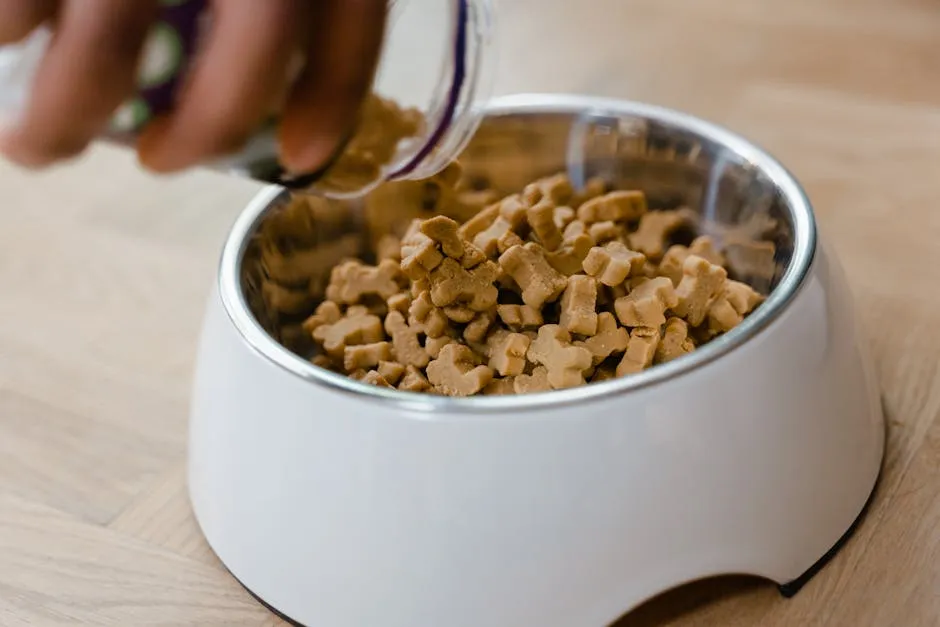
Types of Dog Food for Senior Dogs
When it comes to your senior dog’s diet, the options can feel overwhelming. With so many types of dog food available, it’s essential to understand their benefits and drawbacks. This guide will help you navigate the options, ensuring your furry friend gets the nutrition they deserve.Dry Dog Food
Dry dog food, or kibble, is a popular choice for many pet owners.- Benefits: One of the main advantages of dry dog food is its long shelf life. You can stock up without worrying about spoilage. Plus, the crunchiness of kibble can aid in dental health. Chewing on dry food helps reduce plaque and tartar buildup, keeping those pearly whites shining.
- Considerations: However, not all senior dogs can tackle the hardness of kibble. Dogs with dental issues may struggle to chew it, leading to frustration and potential weight loss. If your dog has trouble chewing, consider opting for smaller kibble or softening it with a splash of water.
If you’re looking for a fantastic dry option, check out Hill’s Science Diet Adult 7+ Chicken Recipe Dry Dog Food. This formula is specially designed for senior dogs, providing the nutrients they need to thrive.
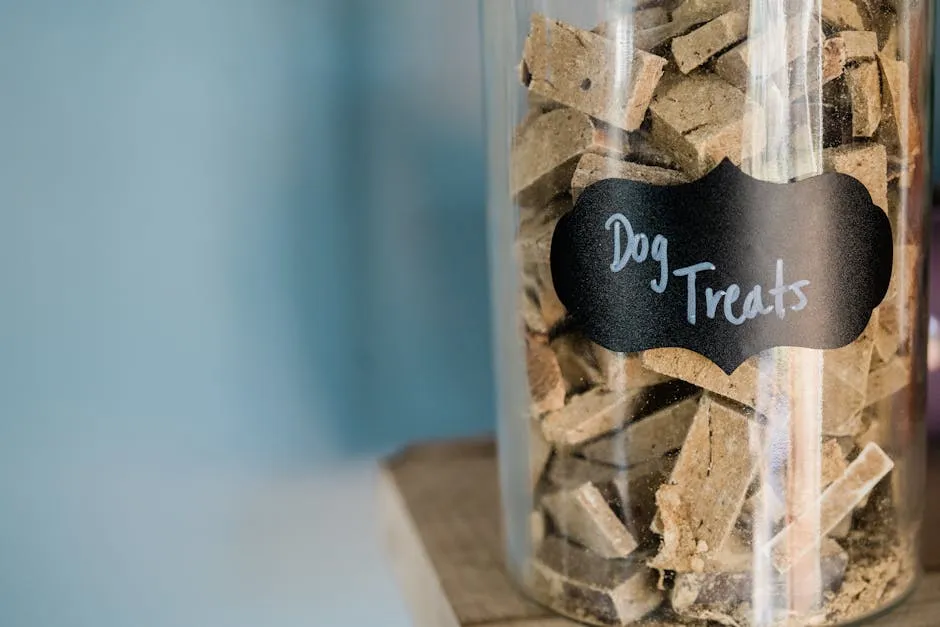
Wet Dog Food
Wet dog food is another excellent option for senior dogs, particularly those with specific needs.- Benefits: The soft texture of wet food makes it a breeze to chew, which is a bonus for aging pups with dental problems. Additionally, the higher moisture content helps keep your dog hydrated, which can be beneficial for their overall health, especially if they tend to drink less water.
- Considerations: On the flip side, wet dog food can be pricier than kibble and has a shorter shelf life. Once opened, it requires refrigeration, which may not suit every owner’s lifestyle. Be prepared for a little more expense and some careful planning.
If your senior dog prefers wet food, consider Merrick Grain-Free Texas Beef & Sweet Potato Recipe. It’s packed with high-quality protein and is sure to satisfy your pup’s taste buds!

Specialty Diets
As your dog’s health needs evolve, specialty diets may be the way to go.- Look for grain-free, organic, or weight management options tailored specifically for senior dogs. These diets often contain fewer calories and healthier ingredients, helping manage weight and overall health.
- If your dog has specific health issues, consider veterinary diets designed for conditions like kidney disease or diabetes. These diets often feature lower protein levels or controlled phosphorus and sodium to help alleviate the burden on your dog’s organs.
For dogs needing a special diet, Hill’s Prescription Diet k/d Kidney Care Dog Food is an excellent choice. It’s specifically formulated to support dogs with kidney issues, ensuring they get the nutrients they need without overburdening their systems.

Homemade Diets
Homemade meals can be a rewarding way to feed your senior dog.- Pros: Preparing food at home allows you complete control over ingredients. You can tailor recipes to suit your dog’s specific preferences and health needs, ensuring they get the best nutrition possible.
- Cons: However, creating balanced meals can be tricky. It’s crucial to consult a veterinarian or a pet nutritionist to develop recipes that meet all your dog’s nutritional requirements. Otherwise, you risk creating a diet that might lack essential nutrients.
To help with homemade meals, consider adding a PetHonesty 10-in-1 Dog Multivitamin. This ensures your pup is getting all the essential nutrients they need, even in homemade meals!
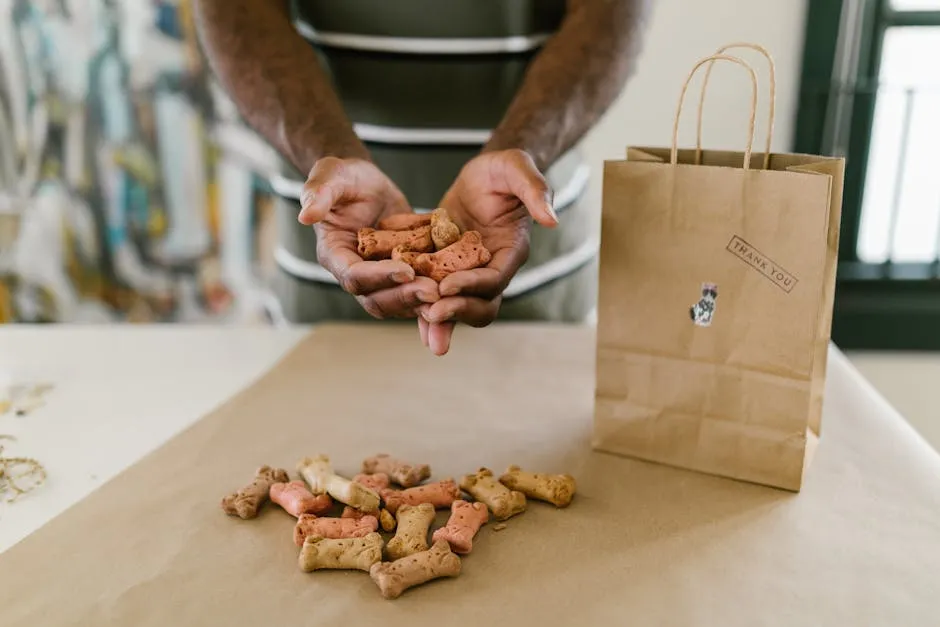
Key Ingredients to Look For
Choosing the right dog food for senior pups can feel like deciphering a secret menu. Fear not! Here’s a guide to help you spot those essential ingredients that will keep your furry friend wagging their tail with joy.High-Quality Proteins
Protein is the cornerstone of any senior dog’s diet. As dogs age, they need high-quality proteins to maintain muscle mass and overall vitality. Look for sources like chicken, fish, and lamb. These proteins are not only tasty but also packed with essential amino acids. Beware of low-quality meat by-products! Those mystery meat meals might sound fancy but often lack the nutritional punch your dog needs. Instead, focus on food where real meat is the first ingredient. Remember, a happy dog is a well-fed dog, and that starts with quality protein!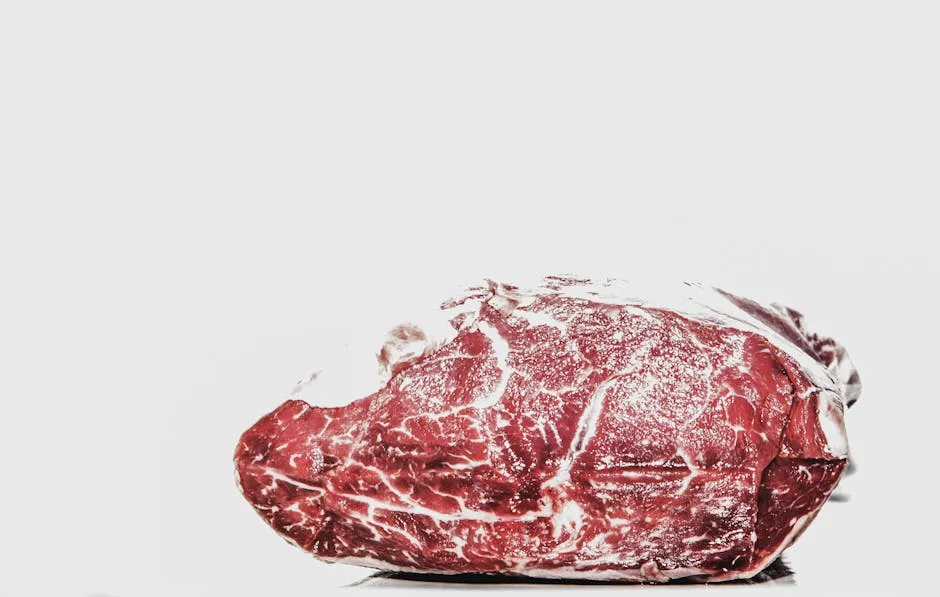
Healthy Fats
Fats are not the enemy! In fact, healthy fats are crucial for senior dogs. Omega-3 and omega-6 fatty acids play a vital role in joint health and keep your dog’s coat shiny and healthy. Think fish oil and flaxseed—they’re like little magic potions for your pup! These fats also help reduce inflammation, which can be a significant issue for older dogs dealing with arthritis. So, don’t shy away from those healthy fats; they’re your dog’s best friends!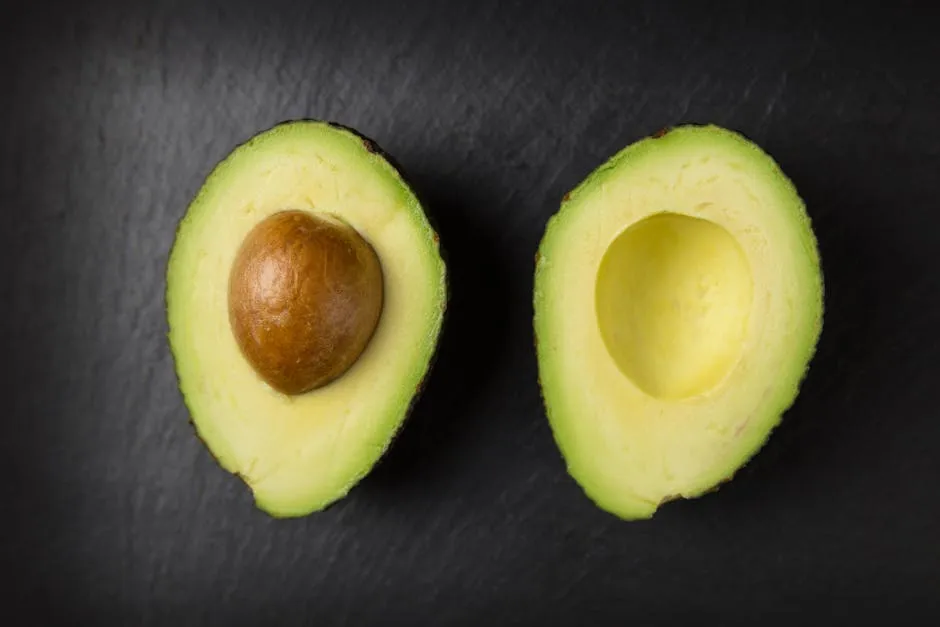
Fiber and Digestive Health
Let’s talk about fiber! As dogs age, their digestive systems can slow down. Fiber helps keep things moving along smoothly. Ingredients like sweet potatoes and pumpkin are fiber-rich and easy for senior dogs to digest. Not only do they support gut health, but they also help in weight management. A diet high in fiber can prevent constipation and keep your dog feeling comfortable. After all, a happy belly equals a happy dog!
Vitamins and Minerals
Vitamins and minerals are the unsung heroes in your senior dog’s diet. Essential vitamins like E, B, and A, along with minerals such as calcium and potassium, are crucial for maintaining overall health. Antioxidants are particularly important for immune support, helping to combat those pesky free radicals that can lead to health issues. Look for dog foods enriched with these essential nutrients, as they help maintain energy levels and support cognitive function. Because let’s face it, we want our dogs to stay sharp and playful, even in their golden years! In summary, when selecting dog food for your senior furry friend, remember to prioritize high-quality proteins, healthy fats, fiber, and a balance of vitamins and minerals. With these ingredients in their food bowl, you’re setting your beloved pup on the path to a happy, healthy life!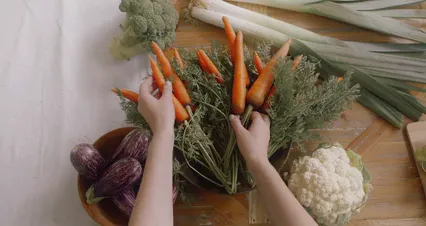
Addressing Specific Health Concerns
Weight Management
As dogs age, their caloric needs change significantly. Senior dogs typically require fewer calories than their younger counterparts. This is mainly due to a slower metabolism and reduced activity levels. A decrease in physical activity can lead to weight gain if their food intake remains the same. Therefore, monitoring your dog’s weight regularly is crucial. Aim for a healthy body condition score—ribs should be easily felt, and there shouldn’t be excessive fat covering. To manage weight effectively, consider feeding smaller, more frequent meals throughout the day. This approach can help control hunger and regulate calorie intake. If your dog is gaining weight, consult your vet about adjusting their portion sizes or switching to a weight management formula. Also, keep an eye on treats—those little snacks can add up! Opt for low-calorie options or limit treats to maintain a healthy balance.For weight management, consider NUTRO Natural Choice Senior Dog Food. This formula is designed to help manage weight while providing all the essential nutrients your senior dog needs.

Joint Health
Joint health is a top concern for senior dogs, especially those suffering from arthritis. Glucosamine and chondroitin are essential nutrients that can help ease joint pain and improve mobility. These compounds support cartilage health, reducing inflammation and discomfort. When choosing dog food, look for brands that include glucosamine and chondroitin, as well as omega-3 fatty acids. These fatty acids can further help reduce inflammation and promote joint function. In addition to a supportive diet, consider adding joint supplements if recommended by your veterinarian. Regular, moderate exercise also plays a crucial role in maintaining joint health. Gentle walks and swimming can keep your dog active without putting too much strain on their joints.
Dental Health
Dental issues often plague senior dogs. Plaque buildup, gum disease, and tooth loss can affect their ability to eat and lead to more serious health problems. To combat dental issues, look for dog foods that promote oral health. Kibble designed to reduce plaque and tartar buildup can help keep your dog’s teeth clean. You might also want to incorporate dental chews or toys that encourage chewing, which can help maintain healthy teeth and gums. Consider Vet’s Best Enzymatic Dog Toothpaste to help keep their teeth clean and fresh.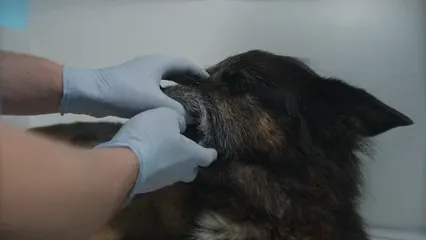
Cognitive Health
Cognitive dysfunction syndrome is a common condition in older dogs, similar to dementia in humans. Symptoms can include confusion, disrupted sleep patterns, and changes in behavior. To support cognitive health, consider dog foods rich in antioxidants, omega-3 fatty acids, and B vitamins. These nutrients can help protect brain cells and improve cognitive function. Additionally, mental stimulation through puzzle toys, training, and interactive play can greatly benefit your dog’s brain health. Engaging activities keep their mind sharp and can help reduce anxiety and confusion associated with aging. For a fun interactive toy, try the Outward Hound Hide-A-Squirrel Puzzle Toy to keep your dog entertained and mentally stimulated.
Transitioning to Senior Dog Food
How and When to Transition
Transitioning to senior dog food should be done thoughtfully. Generally, you should consider switching when your dog reaches around seven years of age, although this can vary based on breed and health status. Senior dog food is formulated to meet the specific needs of aging canines, focusing on lower calories, higher fiber, and nutrient-rich ingredients. When making the switch, do it gradually over a week. Start by mixing a small amount of the new food with their current diet, gradually increasing the new food’s proportion. This slow transition helps prevent digestive upset and allows your dog to adjust to the new flavors and textures. Keep an eye on your dog’s response during this period; if they show signs of discomfort or digestive issues, consult your veterinarian for guidance. Maintaining open communication with your vet is vital during this transition. They can provide personalized recommendations based on your dog’s health status and unique needs. This careful approach ensures a smooth transition to senior dog food, promoting your dog’s health and happiness in their golden years.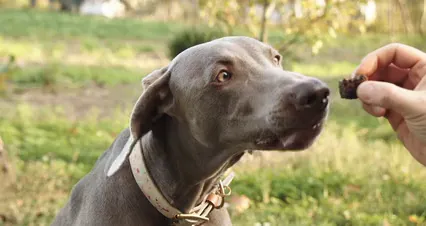
Signs Your Dog Needs a Diet Change
Dogs, like fine wine, change as they age. Recognizing when your furry friend needs a dietary makeover is crucial. Here are some telltale signs your senior pup might need a diet change:- Weight Changes: One day, your dog is a sleek, muscular athlete. The next, they resemble a furry potato. Weight gain can occur due to decreased activity, while weight loss might signal health issues. Keep an eye on those numbers; they tell a story.
- Decreased Activity: If your dog has traded in their sprinting for leisurely strolls around the yard, it’s time to reassess their diet. Aging can lead to joint pain or fatigue. A diet adjusted for their activity level can help keep them spry.
- Dental Issues: Dental problems can sneak up on our furry friends. Bad breath, difficulty chewing, or bloody gums are red flags. If your dog struggles to eat their favorite kibble, it’s time to consider softer food options and adjust their diet accordingly.

Conclusion
Tailoring nutrition for senior dogs is not just beneficial—it’s essential. As our furry companions age, their dietary needs evolve. A well-balanced diet can enhance their overall health, energy levels, and quality of life. Regular veterinary consultations are crucial in monitoring your dog’s health and dietary requirements. Your vet can provide tailored insights, ensuring your dog receives the best care possible. Remember, the right diet can significantly enhance your aging dog’s quality of life. By investing in their nutrition, you’re giving them the gift of comfort and vitality in their golden years. So, whether you’re switching diets or adjusting portions, stay proactive. Your aging dog will thank you with tail wags and joyful barks!FAQs
What is the best food for my senior dog?
A balanced diet rich in high-quality proteins, moderate fats, and fiber is ideal. Look for foods formulated specifically for senior dogs to meet their unique needs.
Should I feed my senior dog wet or dry food?
It largely depends on your dog’s dental health and preferences. Many senior dogs benefit from a mix of both, as wet food is easier to chew while dry food can aid in dental health.
Do senior dogs need low-protein food?
Not necessarily! In fact, many senior dogs require higher protein levels to maintain muscle mass. Consult your vet to determine the right protein level for your dog.
How can I monitor my senior dog’s weight?
Regular weigh-ins at home or during vet visits can help. You can also monitor their body condition score by feeling their ribs and checking for a defined waist.
What are some common ingredients to avoid in senior dog food?
Avoid fillers, artificial preservatives, and low-quality meat by-products. These ingredients offer little nutritional value and can lead to health issues. Always choose high-quality, recognizable ingredients for your senior dog’s diet.
Please let us know what you think about our content by leaving a comment down below!
Thank you for reading till here 🙂
All images from Pexels

